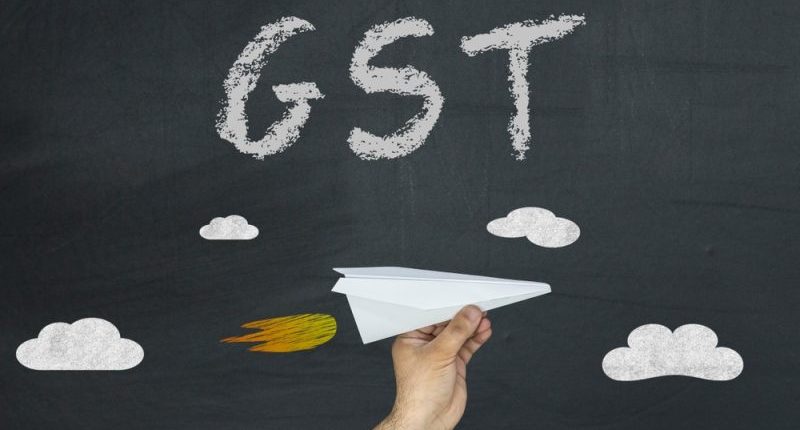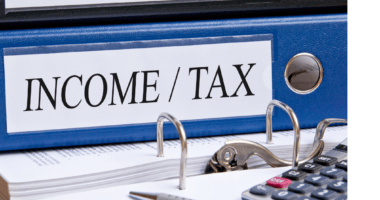The CBIC has taken to twitter to clarify the base amount on which the interest on a delayed GST payment must be paid. It has stated that the interest for late payment of GST in cash shall be calculated on the net tax liability instead of the gross liability. However, the change will be effective only after necessary amendments to the GST laws. The amendments to section 50 of the GST law is yet to be passed for over a year now. Last time, the GST Council had recommended this change in its 31st GST Council meeting held on 22nd December 2018 at Vigyan Bhavan, New Delhi.
The matter of contention has been in the courts for more than a year. It caught eyeballs only recently when the newly appointed CBIC chairman Ajit Kumar Pandey communicated to his team. In the letter F. No. CBEC-20/16/07/2020- GST dated the 10th February 2020, the GST officers were nudged to expedite the process of interest collection that had amounted to a whopping Rs 45,996 crore.
Further, they were instructed to compute interest only on the gross liability. It elaborated that interest liability accrues on the amount of GST liability that is discharged after the due date, either through cash or through the utilisation of input tax credit. It implies that the interest is required to be paid on the total amount of tax liability, as shown in Form GSTR-3B. Following this, the GST officers shot notices to various businesses demanding discharge of the interest liability for the past years.
The communication created frenzy among the taxpayers and CAs becoming a cause of their apprehension. Moreover, the CBIC tweet dated 15th February 2020 worried taxpayers added fuel to the burning blaze. The tweet also clarified that date of applicability of this change in base amount for interest as a prospective one.
It means that once the amendment to section 50 is passed, the change shall apply to all the future periods and not from the inception of GST, which is July 2017. Thus, taxpayers who have knocked the courts’ doors in the past do not stand a chance to win. Accordingly, they may not be exempted from the interest liability, keeping this as a subject.
Amidst these developments, The High Court of Gujarat has stated the interest recovery from taxpayers for the delayed GST payment. A divisional bench comprised of Justice J B Pardiwala and Justice Bhargav D Karia. The bench stated, “We direct the respondents not to take any coercive steps for recovery of the interest.”
The case pertained to the hearing of a petition filed by Amar Cars Private Limited. Further, the court has issued a notice to Centre, the government of Gujarat, and the GST Council. A deadline of 11th March 2020 is given for the respondents including Central and State Government and three others to reply to the notice.
Also Read: Central Govt to release 35,000 crore to states as GST compensation
A bone of contention favours the taxpayer. According to the working concept of GST, the taxpayer’s liability is restricted to the value addition made by him. Consequently, the input tax credit is allowed to the taxpayer for the tax paid by him on his purchases to be adjusted against the tax payable on the sales.
The resulting difference is the tax liability on the value addition to be discharged through electronic cash ledger. It is logical to apply the same principle to interest as well. Then the amount of tax which is required to be paid through electronic cash ledger will be on the net liability.
Currently, the interest is not auto-computed by the GST portal and is self-imposing upon the taxpayer. The taxpayer calculates the said interest and pays the same through cash ledger. Accordingly, there are no technological hindrances in implementing the change.
In contrast to the contention made above, the Telangana High Court took a different stand on 18.04.2019. Until a return is filed as self-assessed in GSTR-3B, credit entitlement or actual credit entry is not allowed in the electronic credit ledger.
Therefore, no payment can be made out of such a credit entry. The judgement affirms that the tax paid on the inputs charged on any supply of goods and services is always available but hazy. Similar to the information made available in the server, it gets displayed on the computer screens only after the connectivity is established.
Likewise, only after the form GSTR-3B is filed for that month, the tax credit is exclusively at the taxpayer’s disposal. Despite this take, the CBIC has pointed out that the necessary amendments would be made to the CGST Act to provide the charge on net liability.
From all these developments and Twitterati lashing out against a prospective amendment, we must also take a distinct note of the fraudulent tax credits. The amendment must be kept prospective, for a reason, as not to hurt the revenue interest of the government.
It is observed while filing GSTR-3B, a lot of provisional tax credits were claimed, the genuineness of which is still being verified by the taxman. Now, charging of interest on a net basis may favour such unidentified fictitious claims. Nevertheless, it must not deprive the genuine taxpayers of the benefit given under the law. A notification giving effect to the amended provision is the need of the hour.
For any clarifications/feedback on the topic, please contact the writer at annapoorna.m@cleartax.in
Annapoorna, popularly known as Anna, is an aspiring Chartered Accountant with a flair for GST. She spends most of her day Singing hymns to the tune of jee-es-tee! Well, not most of her day, just now and then.





